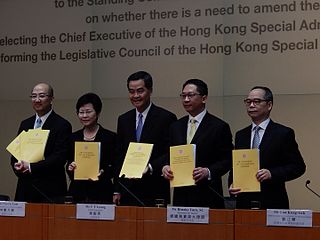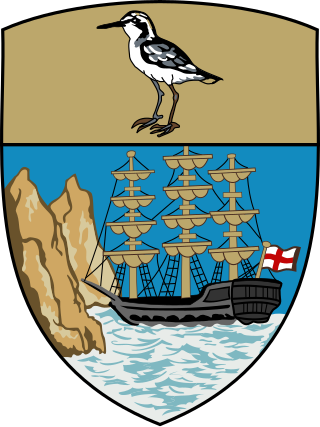 |
|---|
| Constitution |
A referendum on political reforms was held in Andorra on 16 January 1978. [1] Voters were presented with two options, but the none of the above option received the most votes. [1]
 |
|---|
| Constitution |
A referendum on political reforms was held in Andorra on 16 January 1978. [1] Voters were presented with two options, but the none of the above option received the most votes. [1]
In February 1977 the General Council and the Co-Princes agreed to political reforms, putting forward six options to voters in a referendum in October 1977. [2] However, none of the options received a majority of the vote, and 30% of votes cast were left blank. [2]
A second referendum was planned with voters offered a choice between the proposal that received the most votes in the 1977 referendum, and a new proposal. Proposal 6 had received the most votes in the 1977 referendum, and had been put forward by the Democratic Agrupament d'Andorra. They proposed having the General Council elected by proportional representation with regional lists, together with a directly-elected prime minister. The prime minister would then appoint a deputy and four ministers. [2] The General Council put forward a new Proposal 7, which would increase the number of parishes from 6 to 7. Each parish would elect four members to the General Council and the Prime Minister would be directly elected. [1]
| Choice | Votes | % | |
|---|---|---|---|
| Proposal 6 | 647 | 31.55 | |
| Proposal 7 | 673 | 32.81 | |
| None of the above | 731 | 35.64 | |
| Total | 2,051 | 100.00 | |
| Valid votes | 2,051 | 97.34 | |
| Invalid/blank votes | 56 | 2.66 | |
| Total votes | 2,107 | 100.00 | |
| Registered voters/turnout | 3,235 | 65.13 | |
| Source: Direct Democracy | |||

Electoral reform in New Zealand has been a political issue in the past as major changes have been made to both parliamentary and local government electoral systems.

The Senate is the upper house of the Cortes Generales, which along with the Congress of Deputies – the lower chamber – comprises the Parliament of the Kingdom of Spain. The Senate meets in the Palace of the Senate in Madrid. The presiding officer of the Senate is the president of the Senate, who is elected by the members at the first sitting after each national election.

Referendums in the United Kingdom are occasionally held at a national, regional or local level. Historically, national referendums are rare due to the long-standing principle of parliamentary sovereignty. Legally there is no constitutional requirement to hold a national referendum for any purpose or on any issue however the UK Parliament is free to legislate through an Act of Parliament for a referendum to be held on any question at any time.

The North East England devolution referendum was an all postal ballot referendum that took place on 4 November 2004 throughout North East England on whether or not to establish an elected assembly for the region. Devolution referendums in the regions of Northern England were initially proposed under provisions of the Regional Assemblies (Preparations) Act 2003. Initially, three referendums were planned, but only one took place. The votes concerned the question of devolving limited political powers from the UK Parliament to elected regional assemblies in North East England, North West England and Yorkshire and the Humber respectively. Each were initially planned to be held on 4 November 2004, but on 22 July 2004 the planned referendums in North West England and in Yorkshire and the Humber were postponed, due to concerns raised about the use of postal ballots, but the referendum in North East England was allowed to continue, particularly as it was assumed that the region held the most support for the proposed devolution.

A referendum was held in the Canadian province of British Columbia on May 17, 2005, to determine whether or not to adopt the recommendation of the Citizens' Assembly on Electoral Reform to replace the existing first-past-the-post electoral system (FPTP) with a single transferable vote system (BC-STV). It was held in conjunction with the BC Legislative Assembly election of 2005. Voters were given two ballots at that time: a ballot to vote for a Member of the Legislative Assembly of British Columbia (MLA) in their constituency and a referendum ballot. The referendum received considerable support from the electorate but failed in meeting the 60-percent threshold that had been set. A second referendum was held in 2009.

There are two types of elections in Andorra: parliamentary elections and local elections. The 28 members of the General Council of the Valleys are elected in parliamentary elections for a maximum term of four years. In the local elections, the council members of the seven parishes of Andorra are elected for a four-year term.

The Australian republic referendum held on 6 November 1999 was a two-question referendum to amend the Constitution of Australia. The first question asked whether Australia should become a republic, under a bi-partisan appointment model where the president would be appointed by the federal parliament with a two-thirds majority. This was the model that was endorsed by the Constitutional Convention, held in Canberra in February 1998. The second question, generally deemed to be far less important politically, asked whether Australia should alter the Constitution to insert a preamble.

Elections in Togo take place within the framework of a presidential system. Both the President and the National Assembly are directly elected by voters. Togo is a one party dominant state with the Union for the Republic in power.

Local authority areas in England typically have an executive leader and a cabinet selected from the local council, similar to how the national prime minister and cabinet are selected from Parliament. In contrast, residents of some areas, or groups of areas known as combined authorities or combined county authorities, directly elect the executive mayors of their local government.
Electoral reform is a change in electoral systems which alters how public desires are expressed in election results.

A nationwide referendum was held in Moldova on 5 September 2010 on whether or not the country should amend the Constitution of Moldova to return to direct popular election of the president. Since 2001, the president had been indirectly elected by Parliament, with a supermajority of 61 seats required for election. The voters are asked to answer the following question: "Would you agree with the Constitutional amendment, which would allow the election of the President of the Republic of Moldova by the entire population?" Voters chose one of the proposed options: "Yes (for)" or "No (against)". Of those who had cast their vote, 87.83% chose "Yes". However, the referendum did not pass because only 30.29% of voters turned out, short of the necessary 33% for the referendum to be considered valid.

A constitutional referendum was held in Uruguay on 27 November 1966 alongside general elections. Four proposals for amending the constitution were put to voters, with one option receiving 65% of the vote. As a result, the colegiado system was abolished in favour of returning to the presidential system.
Eleven national referendums were held in Switzerland during 2013. Voters approved six proposals related to spatial planning, executive pay, family policy, amendments to the laws on asylum and epidemics and an increase in the length of petrol station shop opening hours. The other five proposals on directly electing the Federal Council, abolishing compulsory military service, limiting salaries in a company to 12 times the lowest paid worker, tax credits for stay-at-home parents and an increase in road tax were rejected.
A referendum on electoral reform was held on Jersey on 24 April 2013. Voters were offered three choices for a future electoral system, and will be asked to rank them in order of preference. Option B was the most preferred option, receiving 41% of votes in the first round, and 55% after second preferences were counted. Voter turnout was just 26%, and the proposed reforms were later rejected by the States.

A referendum on the electoral system was held in Andorra on 28 May 1982.

A referendum on political reforms was held in Andorra on 28 October 1977. Voters were presented with six options, but none received a majority and over 30% of votes cast were left blank. A second referendum on political reform was held the following year.

The 2014–2015 Hong Kong electoral reform was a proposed reform for the 2017 Hong Kong Chief Executive election and 2016 Legislative Council election.
An Icelandic Constitutional Council (Stjórnlagaráð) for the purpose of reviewing the Constitution of the Republic was appointed by a resolution of Althingi, the Icelandic parliament, on 24 March 2011. Elections were held to create a Constitutional Assembly (Stjórnlagaþing) body, but given some electoral flaws, had been ruled null and void by the Supreme Court of Iceland on 25 January 2011, leading the parliament to place most of the winning candidates into a Constitutional Council with similar mission. The question of whether the text of the proposed constitution should form a base for a future constitution was put to a non-binding referendum, where it won the approval of 67% of voters. However, the government's term finished before the reform bill could be passed, and following governments have not acted upon it.

A referendum on electoral reform was held in Jersey on 15 October 2014, alongside general elections. Voters were asked whether elected constables should continue to automatically become members of the States. Their continued automatic membership was approved by 62% of voters.

A two-part consultative referendum on changing the system of governance was held in Saint Helena on 17 March 2021. In the first question, voters were asked whether there should be a change. In the second, they were asked for their preference on the form of governance, choosing between a committee system and a ministerial system.